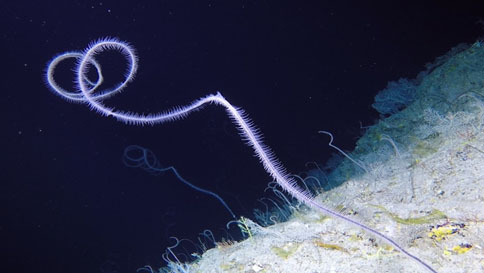
This week, scientists from NCCOS’s Deep Coral Ecology Laboratory published a taxonomic guide of Bermuda’s black corals. The study describes species collected during a 2016 expedition that used submersibles and technical SCUBA gear to survey deep-water habitats around Bermuda.
Black corals are poorly studied, because most species inhabit deep-water environments that are logistically challenging to access, and there are few experts specializing on this group of corals. The new guide provides detailed descriptions of seven black coral species, including three that were not known from Bermuda.
Deep-sea corals provide habitats for many marine species, including economically important fisheries. The study sought to collect scientific information needed to manage deep-sea coral ecosystems. Additionally, the study supports NOAA collaborations like the Galway Statement on Atlantic Ocean Cooperation, as well as the Southeast Deep Coral Initiative.
The expedition was supported by the XL Catlin Deep Ocean Survey, a multidisciplinary program that seeks to characterize deep-sea ecosystems around the world. The XL Catlin Deep Ocean Survey partnered with NCCOS’s Deep Coral Ecology Laboratory on this project to benefit from the lab’s unique expertise in using state-of-the-art technologies to identify deep-water corals.
